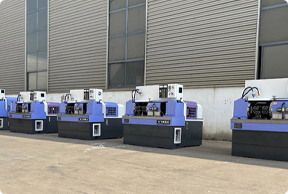
-
 Afrikaans
Afrikaans -
 Albanian
Albanian -
 Amharic
Amharic -
 Arabic
Arabic -
 Armenian
Armenian -
 Azerbaijani
Azerbaijani -
 Basque
Basque -
 Belarusian
Belarusian -
 Bengali
Bengali -
 Bosnian
Bosnian -
 Bulgarian
Bulgarian -
 Catalan
Catalan -
 Cebuano
Cebuano -
 Corsican
Corsican -
 Croatian
Croatian -
 Czech
Czech -
 Danish
Danish -
 Dutch
Dutch -
 English
English -
 Esperanto
Esperanto -
 Estonian
Estonian -
 Finnish
Finnish -
 French
French -
 Frisian
Frisian -
 Galician
Galician -
 Georgian
Georgian -
 German
German -
 Greek
Greek -
 Gujarati
Gujarati -
 Haitian Creole
Haitian Creole -
 hausa
hausa -
 hawaiian
hawaiian -
 Hebrew
Hebrew -
 Hindi
Hindi -
 Miao
Miao -
 Hungarian
Hungarian -
 Icelandic
Icelandic -
 igbo
igbo -
 Indonesian
Indonesian -
 irish
irish -
 Italian
Italian -
 Japanese
Japanese -
 Javanese
Javanese -
 Kannada
Kannada -
 kazakh
kazakh -
 Khmer
Khmer -
 Rwandese
Rwandese -
 Korean
Korean -
 Kurdish
Kurdish -
 Kyrgyz
Kyrgyz -
 Lao
Lao -
 Latin
Latin -
 Latvian
Latvian -
 Lithuanian
Lithuanian -
 Luxembourgish
Luxembourgish -
 Macedonian
Macedonian -
 Malgashi
Malgashi -
 Malay
Malay -
 Malayalam
Malayalam -
 Maltese
Maltese -
 Maori
Maori -
 Marathi
Marathi -
 Mongolian
Mongolian -
 Myanmar
Myanmar -
 Nepali
Nepali -
 Norwegian
Norwegian -
 Norwegian
Norwegian -
 Occitan
Occitan -
 Pashto
Pashto -
 Persian
Persian -
 Polish
Polish -
 Portuguese
Portuguese -
 Punjabi
Punjabi -
 Romanian
Romanian -
 Russian
Russian -
 Samoan
Samoan -
 Scottish Gaelic
Scottish Gaelic -
 Serbian
Serbian -
 Sesotho
Sesotho -
 Shona
Shona -
 Sindhi
Sindhi -
 Sinhala
Sinhala -
 Slovak
Slovak -
 Slovenian
Slovenian -
 Somali
Somali -
 Spanish
Spanish -
 Sundanese
Sundanese -
 Swahili
Swahili -
 Swedish
Swedish -
 Tagalog
Tagalog -
 Tajik
Tajik -
 Tamil
Tamil -
 Tatar
Tatar -
 Telugu
Telugu -
 Thai
Thai -
 Turkish
Turkish -
 Turkmen
Turkmen -
 Ukrainian
Ukrainian -
 Urdu
Urdu -
 Uighur
Uighur -
 Uzbek
Uzbek -
 Vietnamese
Vietnamese -
 Welsh
Welsh -
 Bantu
Bantu -
 Yiddish
Yiddish -
 Yoruba
Yoruba -
 Zulu
Zulu
Understanding CE Certification for Thread Rolling Machines and Their Associated HSN Code in Industry
Understanding CE Certification and HSN Codes for Thread Rolling Machines
In today's global market, ensuring compliance with international standards is essential for manufacturers and exporters. One critical aspect of international trade, especially in the machinery sector, is the CE certification, which signifies that a product meets specific European safety, health, and environmental protection requirements. This certification is particularly relevant for thread rolling machines, which are crucial in various manufacturing processes, including the automotive, aerospace, and construction industries. In conjunction with CE certification, businesses must be aware of the Harmonized System Nomenclature (HSN) codes, which facilitate international trade by classifying goods.
What is CE Certification?
CE, or Conformité Européenne, is a certification mark that indicates a product's compliance with the requirements set out by European Union directives. For thread rolling machines, which are used to create threads on metal rods and bolts through a process of deforming, it's essential that these machines adhere to the standards laid out in the Machinery Directive (2006/42/EC) and the Low Voltage Directive (2014/35/EU), among others. The CE mark assures consumers and businesses that the machine is safe to use and meets strict quality standards.
To obtain CE certification, manufacturers must undergo rigorous testing and evaluation of their machines. This includes ensuring that safety features are in place and that the equipment is reliable under various conditions. An essential aspect of the CE certification process is the technical documentation, which should detail the design, manufacturing processes, and safety assessments. Once certified, the product can be sold within the European Economic Area (EEA), enabling manufacturers to access a broader market base.
The Importance of HSN Codes
HSN codes are internationally recognized numerical codes used to classify goods for customs and trade purposes. They are critical in determining tariffs and export duties, making them essential for businesses involved in international trade. For thread rolling machines, the relevant HSN code helps customs officials identify the product and its specifications, streamlining the import and export processes.
ce certification thread rolling machine hsn code

In India, the Goods and Services Tax (GST) has made the use of HSN codes more relevant, as businesses are required to provide HSN codes on invoices for seamless tax compliance. Different countries may have specific HSN codes for thread rolling machines, varying based on their unique classification systems. For instance, in India, the HSN code for machinery like thread rolling machines typically falls under a specific heading that includes all machinery related to metalworking.
Navigating Compliance Successfully
For manufacturers and exporters of thread rolling machines, navigating CE certification and HSN codes is vital for successful market entry and operation. Understanding the specific requirements for CE certification can prevent costly penalties and recalls associated with non-compliance. Additionally, accurately identifying and applying the correct HSN code ensures smoother transactions and improved relationships with customs authorities.
To facilitate compliance, businesses can consult with experts in certification and international trade. These professionals can provide valuable guidance on the nuances of CE certification, the technical documentation required, and the proper HSN classification for their products.
Conclusion
In conclusion, CE certification and HSN codes play pivotal roles in the trade of thread rolling machines. As the global marketplace continues to evolve, ensuring compliance with these standards is not just a legal requirement; it is also a competitive advantage. Manufacturers that prioritize these aspects are better positioned for success, paving the way for safe and efficient machinery in various industries. By understanding and implementing these crucial components, manufacturers can confidently navigate the complexities of international trade, ensuring their products meet both regulatory standards and market demands.
